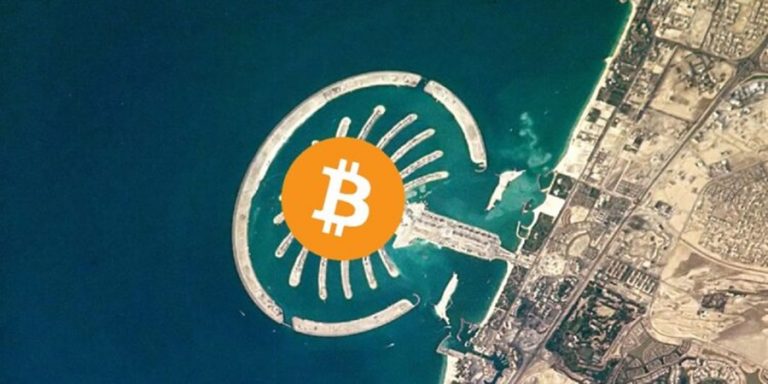
Dubai is set to construct a 17-story Crypto Tower, aimed at supporting businesses in the blockchain, Web3, and decentralized finance (DeFi) sectors. This project will provide 150,000 square feet of leasable space and will feature various amenities like blockchain incubators, an AI innovation hub, and a crypto club for networking.
The tower is planned to be located in the Jumeirah Lakes Towers (JLT) area and is expected to be completed by the first quarter of 2027. This initiative underscores Dubai’s ambition to become a leading global hub for blockchain technology, competing with other regions like the United States for dominance in the field.
Dubai has actively engaged in shaping its regulatory environment to foster growth in the cryptocurrency and blockchain sectors, aiming to become a global hub for these technologies. Here’s an overview of the crypto regulation landscape in Dubai, based on recent developments.
Register for Tekedia Mini-MBA edition 19 (Feb 9 – May 2, 2026).
Register for Tekedia AI in Business Masterclass.
Join Tekedia Capital Syndicate and co-invest in great global startups.
Register for Tekedia AI Lab.
All entities offering crypto-related services must obtain the relevant authorization and licenses from VARA. The framework includes both compulsory rulebooks for service providers and activity-based rulebooks tailored to the type of service offered. This includes services like exchanges, custody, lending, and payments. The licensing fees are on the higher side, with an application fee for exchange services at 100,000 UAE dirham (US$27,200) and an annual supervision fee at 200,000 UAE dirham, with additional fees for other services.
Dubai’s decision to build a 17-story Crypto Tower can be understood through several strategic and economic lenses:
Dubai has long positioned itself as a hub for innovation, finance, and tourism. By constructing a dedicated tower for blockchain, Web3, and DeFi businesses, Dubai aims to solidify its position as a global leader in the emerging digital economy. This aligns with broader initiatives like the Dubai Blockchain Strategy, which seeks to make Dubai the first city fully powered by blockchain technology by 2025.
While the regulatory framework has been comprehensive, it initially lacked specific rules for stablecoins, although VARA does address these in its company rulebook, focusing on liquid asset reserve requirements for such assets. There’s been some discussion about potentially banning crypto for buying goods or services, indicating a possible tightening of regulations in this area.
Dubai offers a zero percent personal income tax on crypto gains for tax residents, making it attractive for crypto enthusiasts and investors. There are no taxes on capital gains, business income, or salaries related to crypto activities. Dubai’s regulatory approach reflects a balance between fostering innovation and protecting the market, with continuous updates to its regulatory framework to adapt to the fast-evolving nature of the crypto industry.
Attracting Blockchain and Crypto Businesses: The tower acts as a magnet for startups, established companies, and talent in the crypto and blockchain space. By providing specialized infrastructure, including incubators, innovation hubs, and networking spaces, Dubai is creating an ecosystem conducive to the growth of these technologies. This not only fosters local entrepreneurship but also attracts international companies looking for a regulatory-friendly environment.
The UAE, and particularly Dubai, is actively diversifying its economy away from oil dependency. The blockchain and cryptocurrency sectors represent new, high-growth areas that can contribute significantly to GDP, job creation, and technological advancement. The tower symbolizes this shift towards a knowledge-based economy.
With countries like the United States, Singapore, and Switzerland also vying to become crypto hubs, Dubai is using this project to stand out. By dedicating physical infrastructure to this sector, Dubai is not just competing but also setting a trend in urban and economic development focused on digital assets.
Tourism and Branding: The Crypto Tower could become a landmark for tech tourism, much like other iconic buildings in Dubai have for traditional tourism. It enhances Dubai’s brand as a forward-thinking, innovative city, potentially attracting tech enthusiasts, investors, and professionals to visit or relocate.
Real Estate and Investment: Building such a specialized tower also taps into the real estate market, providing investment opportunities and potentially high returns through leasing to tech companies. It’s an investment in real estate that aligns with future economic trends.
Community and Networking: The tower’s amenities, like the crypto club, aim to foster a community of like-minded individuals, encouraging collaboration, innovation, and knowledge sharing within the crypto and blockchain world. The construction of the 17-story Crypto Tower in Dubai is a multifaceted strategy aimed at economic diversification, attracting international business, enhancing Dubai’s reputation in global tech, and providing infrastructure tailored to the needs of the blockchain and cryptocurrency sectors.



